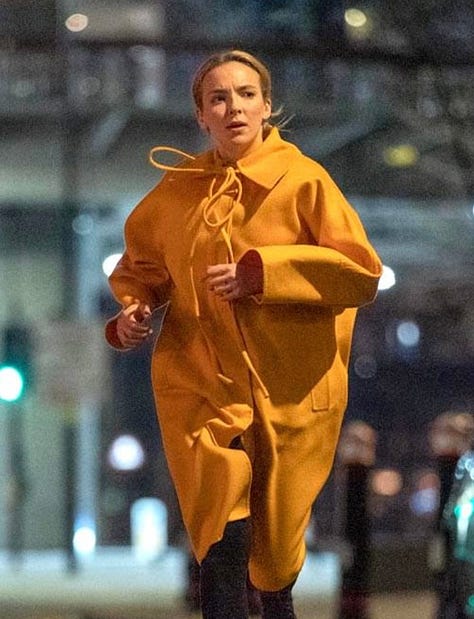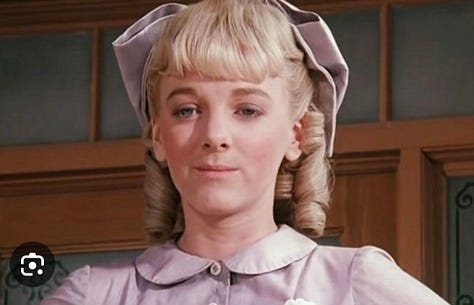
I felt a thump on my shoulder. Ok, thump was maybe a bit of an exaggeration, but it was definitely more than a tap. There was a girl, and I call her that because she was less than half my age, jogging past me. She was wearing a yellow cap pulled down over her eyes and a yellow long-sleeved jacket even though it was the warmest day of the year and as she passed me, she said in a semi-whisper and in a mildly threatening tone with a suspicious accent which reminded me of Villanelle in Killing Eve, “don’t stop, you must walk for a bit”. I had stopped, as I often do on my runs because I’m not in a race nor trying to beat my personal best, to admire a patch of dandelions, because there seemed to be a lot of them about this spring. Before I was interrupted, I was thinking that weeds can be beautiful in their own way. I didn’t like that she had whacked me, but I mainly didn’t like that she was telling me what to do based on her rules of what she would do if she momentarily needed to catch her breath or had a stitch or a twisted ankle, and I wasn’t one of those runners who comply with the running code and act the part by hopping up and down as they wait at traffic lights.
I continued on with a strange sense of violation and stopped again where I always stop when I have reached my two-mile half-way point. It was just a few metres from the only bench on the Greenway, which has a view of nothing except the pedestrian and cyclist bridge leading vaguely to the leisure complex and I tried to find a photo of the bridge but there are none because it is so unphotogenic. I was admiring the graveyard between the hedges when I spotted her coming back towards me. And I can’t believe I did this, and it was a spilt-second decision, perhaps based on fear that she might push me over for even worse disobedience, or remembering what exactly Villanelle was capable of, but I ran, and I hid. I turned left and sprinted along the bridge to the end of it, and I waited there until I saw her go past and then I sauntered back towards my intended route.
And I thought, who tells a stranger how to pace themselves. And she’d picked on the wrong stranger in what was supposed to be seven miles of traffic-free tranquillity because once I’d started exercising my rights not just to run the way I wanted to, but to work the way I wanted to and use my time the way I wanted to and worship the way I wanted to and feel the way I wanted to and live the way I wanted to, I left things, and I kept leaving until I’d left everything where I felt unable to do that and now I react quite badly to being controlled. There was a term for how my brain responded to threats to my freedom. It was called psychological reactance. My teenagers were good at it too. It involved doing the opposite of what they were told. Reverse psychology could be deployed but it rarely worked. And I was cross that I’d run away and hidden because what I should have done was stand my ground and not move my feet like a recalcitrant fifteen-year-old and wave at her as she passed.
Lydia has started to curl her hair because everyone else is straightening theirs. “You look like Nellie Oleson,” I said. “You should google her”. And she did and she wasn’t pleased and so she said, “well, you look like Nanny Plum”. I had vague recollections of Ben and Holly’s Kingdom and that everyone who lived there was very, very small, but I googled Nanny Plum, and it wasn’t a flattering likeness, but it said that she could be cynical, and at times, dismissive of authority. She found it humorous when others took themselves too seriously such as the Wise Old Elf and she enjoyed challenging him because they had differing opinions on the use of magic. He was not as wise as he claimed to be, but all the elves respected him immensely no matter what he did.



“You’re not the boss of me,” my younger sister said when I deployed my more senior firstborn position and in my resignation email to my employer, I said I was leaving because I didn’t want to be managed anymore. And without coming over all egalitarian, destructive systems have been built on too many people allowing someone no wiser than them, just supposedly above them in a hierarchical construct, to tell them what they can do and think without questioning it.
“You might generate letters, hope you’re ok with that,” said an editor when I submitted an article on how the church should engage with the culture around it and I knew that if there were letters, it wouldn’t be because I was wrong but because someone else didn’t think I was right. And regardless of the hierarchy, we had to learn how to respect different opinions on magic the supernatural.
And not long after the Greenway episode, my mother texted me to tell me she was sending my father to B&Q to get a tool for dandelions, one with an ergonomic handle, which would specifically rip them out by their roots because her garden was covered in them, and they were an eyesore. And because I felt differently and wasn’t sure if dandelions were an eyesore and if it was fair to launch “kill the dandelions”, I looked them up and it said that “before the invention of lawns, people praised the golden blossoms and lion-toothed leaves as a bounty of food, medicine and magic. Gardeners often weeded out the grass to make room for the dandelions. But somewhere in the twentieth century, humans decided that the dandelion was a weed”. But I decided not to disagree with my mother because it wasn’t worth it and no amount of reverse psychology was going to change how she felt about dandelions and I said to my friend that I didn’t know if I’d got it right or wrong with my children because they weren’t afraid of me and that if I hated dandelions, they’d love them, and in fact they had taken psychological reactance a bit too far and become rebels without causes, just because. But the alternative was to suppress them, and I wasn’t supposed to be raising clones of me, I was supposed to be raising individuals with their own rights to freedom.
And I wondered who gets to decide what’s a weed and if not obeying the laws of twentieth-century gardening means you must be torn out and tossed in the rubbish heap but I wasn’t sure if I was thinking now about gardening at all or about the societal institutions like family and education and religion that can’t see the beauty of a dandelion because it’s not a straightforward flower and I thought that formal, manicured lawns are really quite boring.
Ringlets were still on my mind, so I googled Little House on the Prairie. It was fifty years old, and I watched the theme tune and there they were, pioneers arriving in their horse-drawn covered wagon, and I couldn’t tell if they were dandelions or daisies or some other type of wildflowers in the meadow they were running through, but they were running freely and tumbling with glee among them.



Deborah it's always a pleasure to read your writing. This week my mum died suddenly so it's taken me to Sunday to get time to read your weekly piece. So important the points you make about control and I also recognise the questions that raises. I cherish dandelions and hope others will join me in reframing their dignity, extreme utility and bright beauty.